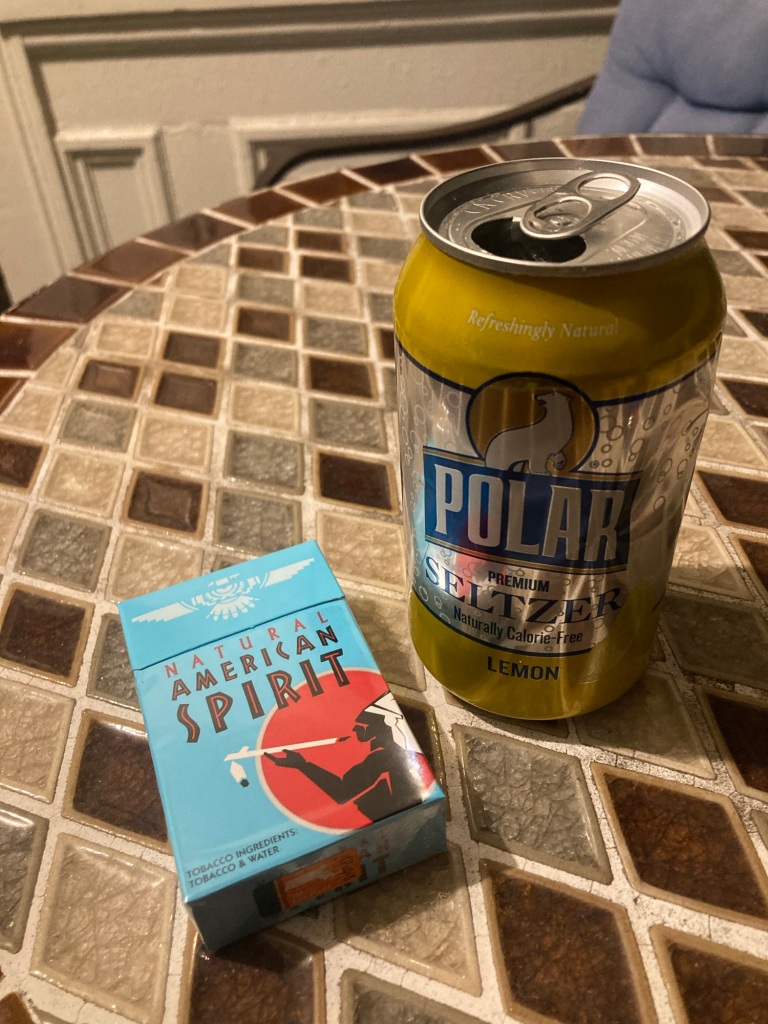American Feelings
by Eliot Cardinaux
In January, 2024, I moved to Denmark for a love powerful enough to get me to leave behind my life in the United States. Less than two months later, my would-be partner abruptly ended things. By now, I’ve come to realize that she couldn’t accept me. She saw a truth in me. That I carry around a darkness. One of the signs, she said, is that I approach difficult subjects in my work. But when a friend reached out to me in crisis from back home, suicidal, wanting to end his life, she couldn’t respond to my need.
We were at a party. I kept stepping out to smoke, to get away, in panic about my friend. I couldn’t handle all the social interaction, loud music, and dancing, in the midst of his long-distance appeals for help. A familiar collision of dissonant realities. My wifi connection was spotty, making it worse. My friend’s eventual radio silence that night left me in the dark as to whether he might be alive the next day.
She wanted to take my mind off things (“why don’t you dance with my friend?”). I tried my best to stay present. When we later got back to the house, she parked the car and said, quite earnestly, “we need to talk about your smoking.”
I explained to her that it was a difficult time to be confronted about my admittedly problematic nicotine addiction. She retorted that my friend was “evil” for putting his suicidality on me.
Her choice of words, I thought, must be lost in translation. Did she really view his suffering through such a radically moralistic lens? Writing this now, however, I am reminded of Søren Kierkegaard’s treatise, The Sickness Unto Death, in which he rationalizes ad absurdum about the immorality of despair. Perhaps she viewed my friend’s abjection through the present-day vestiges of a 19th-Century Danish lens.
My own history with depression, anxiety, suicidality, and mental illness, has led me here, belonging to a community of likewise struggling individuals — most of them artists — both in the sense of my need for them, and my need to be there for them. That this reality was simply too much for her to handle, regardless of my integrity — which I did my best to uphold in our relationship — shows a certain preference on her part for comfort and ease of living, over the safety of others.
We can’t be simply reduced to symptoms of the societies from which we spring, nor can the functionality of entire societies be fully extrapolated from the behaviors of their individual components. However, with regard to my would-be partner’s rejection of the validity of my friend’s appeal, and my desire to address it, perhaps it is as simple as the fact that in her experience, there are no apparent, visible, and therefore adequate, or even conceivable reasons for wanting to end one’s life. Begging, for instance, is criminalized in Denmark, rendering virtually invisible the reality of absolute poverty in others. The system will take care of it. “The face of evil is always the face of total need,” writes William Burroughs.
With regard to my own — yes, desperate, implacable, impossible (I very much hesitate to say American) — empathy and compassion in relation to my friend, however messy, perhaps I know the meaning of a certain pain because I’ve been there. To quote another, albeit fictional Dane alongside Kierkegaard, Hamlet’s fated quandary, “to be or not to be,” remains an essential question, one to be treated with the utmost care and respect. My former teacher, Ocean Vuong, relayed the same to me, when I once approached him in his office during a crisis of my own.
Many other Danes have since proven me wrong. It took a lot to untangle the feelings. As for my smoking, I’ve battled addiction all my life. In one week’s time, I will be three years sober from alcohol. But if it’s not one thing it’s another. “You have many good qualities.” That was the last thing she ever said to me. Maybe it was her gift. To shirk all responsibility, and leave me stranded in a foreign country with no place to live but this feeling, this leaden substance that I now have to handle with care, and shape into something beautiful.
Eliot Cardinaux
April 1st, 2024


Hey
I like getting these. Sounds hard man, I hope you are hanging in there. You are a very lovable dude, you know that!
What’s your plan for the Bram recording? I am going to be staying at Will McEvoy’s April 14-21st and rehearsing and recording with Otto Hauser, Tyler Wood and Adam Chilenski that week. Will you be around?
Would be great to see you
R